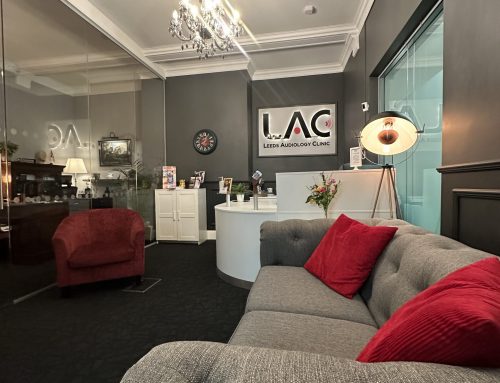Deaf Awareness Week
5th-11th May 2025
What is Deaf Awareness Week?
The theme for Deaf Awareness Week this year is ‘Beyond Silence’. This year’s theme encourages individuals, communities and organisations to do more than just acknowledge deafness by actively working towards meaningful change. The ways in which deaf and hard of hearing people communicate are diverse. From British Sign Language (BSL), to lip reading, written communication and assistive technology. There are also many social, cultural and professional barriers that deaf individuals face. By being deaf aware and advocating for improved accessibility, inclusivity and equal opportunities we can begin to make changes.
Facts and Figures
There are over 18 million adults in the UK who are deaf, have hearing loss or tinnitus
Over half the population aged 55 or more have hearing loss
An estimated 1.2 million adults in the UK have hearing loss severe enough that they would not be able to hear most conversational speech

Difficulties Deaf and Hard of Hearing People May Face
Social Isolation, Loneliness and Lack of Confidence
Holding and following a conversation can be difficult for those with hearing loss, particularly when there is a lot of background noise or voices talking over one another. People may feel embarrassed asking someone to repeat themselves or slow down so will miss parts of the conversation and not feel fully present. This can often lead to people retreating into themselves and not joining in socially. Their confidence can be negatively affected and it can feel really lonely.
Mental and Physical Drain
Struggling to hear speech and having to concentrate harder on facial expressions and lip reading during a conversation can be exhausting.
Personal Safety
being unable to hear certain sounds such as roadside traffic, public announcements or fire alarms/sirens can mean deaf people often feel extremely vulnerable.
Trouble Sleeping
Night time can be scary for a lot of deaf people, particularly children. People who are used to wearing hearing aids and hearing some sounds during the day can struggle with the silence when they go to bed. Children often worry that the house is empty of they have been left alone when they are unable to hear their parents downstairs.
Communication and Speech
There is still a long way to go in improving interactions with deaf and hearing people. More awareness is needed to ensure that deaf and hard of hearing people are able to communicate in a way that suits them. Everyone is different and will have a preferred method of communication. Even people that can lip-read well only understand about 30% of what’s being said. Wearing hearing aids or a cochlear implant doesn’t mean that the person will hear in the same way or as well as a hearing person.
Education and Employment
Most deaf children are born into hearing families and are often delayed in acquiring and developing their language because they don’t get early access to sign language. A report by the Education Policy Institute in partnership with NDCS found that deaf children were on average almost a year and a half (17.5 months) of learning behind their classmates, who did not have additional needs, by their GCSEs in 2019. You can learn more about their findings here.
12 million adults of working age have hearing loss in one or both ears. Recent public polling (2023) found that over a quarter (26%) of people would feel uncomfortable being told to manage someone with a hearing loss. Most people who are deaf or have hearing loss have felt stressed at work because of their hearing loss. You can find more information about this here.
Tinnitus
Tinnitus often occurs with hearing loss and can be very distressing. Sounds such as ringing, buzzing and whistling come from within the ear rather than an outside source. For many deaf people with tinnitus, these sounds are all they can hear. You can find out more about Tinnitus from one of our previous blog posts here.

Tips for Being More Deaf Aware
When talking to a deaf person, always face them
Ask the person how they would like to communicate. Not all deaf people and people with hearing loss are the same
Be mindful of background noise
Don’t cover your mouth so the person can lip read
Repeat and rephrase if necessary
Speak clearly, slowly and steadily
Write it down if necessary
Learn basic sign language
Support deaf organisations
Workplace Adjustments for Employers
Improve the acoustics with soft furnishings and acoustic panels to reduce echo and reverb
Make sure employees with hearing loss are positioned in an area with good acoustics where they can see the rest of the room
Adjust the layout of a meeting room and ensure there is good lighting so everybody can be seen clearly for lipreading
Turn music down or off in the workplace to allow for better communication
If an employee uses an interpreter, ensure there is additional seating for them
Access to Work is designed to help cover the cost of more expensive workplace adjustments. It’s a good idea to arrange a workplace assessment for employees with hearing loss. You can find more information about that here.
Relay UK – Telephone Communication
Relay UK is an excellent service that helps deaf, speech-impaired and hearing people communicate over the phone. You can download the app to use on your mobile, tablet or PC. You type what you’d like to say and read the replies in real time while an assistant relays the conversation. We’ve answered lots of calls via Relay at the clinic and have found it be a really useful service! You can find more information about Relay here.
Rail Travel
Did you know about railcard discounts for deaf travelers? If you missed our previous blog on this, you can check it out here. While railcard discounts are helpful, travelling on public transport with hearing loss can be challenging. Hearing Link Services have shared some helpful train travel tips for deaf and hearing impaired people here.
We hope you’ve found this blog insightful! To book an appointment with us for a hearing check, you can contact the clinic here.

Sources
Deaf Resources Centre – Deaf Awareness Week 2025
GOV.UK – British Sign Language
NDCS – Barriers Deaf People Face in the Community






